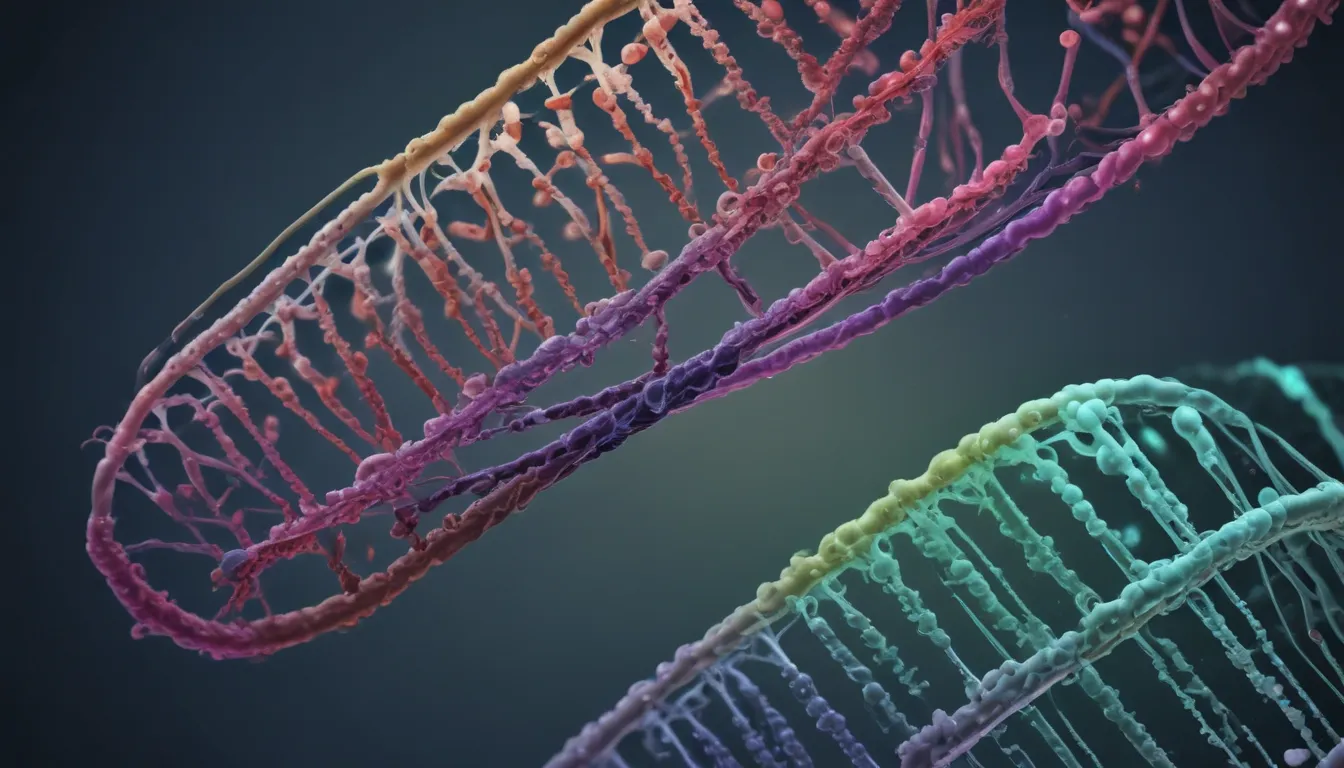A Note About Images: The images used in our articles are for illustration purposes only and may not exactly match the content. They are meant to engage readers, but the text should be relied upon for accurate information.
Polymerase Chain Reaction (PCR) is a groundbreaking technique in molecular biology that has revolutionized scientific research and diagnostics. Developed in the 1980s by Kary Mullis, PCR is a method used to amplify specific segments of DNA, producing millions of copies of the target sequence in a short period of time. From genetics to forensics and medicine, PCR has become a cornerstone technique with diverse applications.
Unveiling the Power of PCR
- PCR Revolutionized Molecular Biology:
-
PCR, developed by Kary Mullis in the 1980s, has transformed the field of molecular biology by allowing for the amplification of specific DNA sequences.
-
Essential in DNA Fingerprinting:
-
Widely used in forensic science and paternity testing, PCR is essential for analyzing DNA samples and creating unique fingerprint profiles.
-
Sensitive Amplification of DNA:
- PCR is incredibly sensitive and can amplify DNA from just a single molecule, making it a powerful tool in genetic research and diagnostics.
The Impact of PCR in Various Fields
- Detecting Genetic Diseases:
-
PCR has been instrumental in diagnosing genetic diseases by identifying specific genetic mutations associated with various conditions.
-
Ancestral and Evolutionary Studies:
-
By amplifying and comparing specific DNA sequences, PCR allows scientists to study genetic relationships between individuals and trace evolutionary lineages.
-
Cloning DNA Fragments:
-
PCR enables the generation of large quantities of a specific DNA segment, crucial for cloning genes or creating recombinant DNA molecules.
-
Prenatal Testing:
-
PCR-based techniques are employed in prenatal screening to detect genetic abnormalities in unborn babies, such as Down syndrome.
-
Detection of Infectious Diseases:
-
PCR is utilized to identify and detect pathogens responsible for infectious diseases, enabling early diagnosis and effective treatment.
-
Facilitating DNA Sequencing:
- PCR plays a pivotal role in DNA sequencing techniques, allowing scientists to determine the precise order of nucleotides in a DNA molecule.
Diverse Applications of PCR
-
Ancient DNA Studies:
- By amplifying and studying DNA from ancient organisms, PCR has helped uncover fascinating insights into our evolutionary history.
-
Environmental Monitoring:
- PCR-based methods are employed to identify and quantify microorganisms in various environmental samples, aiding in ecological research and monitoring.
-
Personalized Medicine:
- PCR techniques are used to identify specific genetic variations that affect an individual’s response to certain medications, enabling personalized treatment plans.
-
Foodborne Pathogen Detection:
- PCR-based tests are crucial for detecting harmful bacteria, viruses, and parasites in food, ensuring food safety and preventing outbreaks.
-
Amplification of RNA Molecules:
- Reverse transcription PCR (RT-PCR) allows the amplification of RNA molecules, enabling the study of gene expression and viral infections.
-
Applications in Agriculture and Food Production:
- PCR is used in agricultural research and food production to detect genetic modifications, study plant and animal genetics, and ensure product quality.
-
Detection of Drug-Resistant Bacteria:
- PCR-based methods can identify specific genetic markers associated with antibiotic resistance, aiding in the surveillance and management of drug-resistant bacteria.
The Versatility of PCR in Modern Science
- A Versatile and Indispensable Tool:
- From medical diagnostics to forensic analysis, PCR has revolutionized multiple fields of study and continues to be a driving force in scientific advancements.
Conclusion
Polymerase Chain Reaction (PCR) is a revolutionary scientific technique that has transformed molecular biology. With its ability to amplify specific DNA segments, PCR has enabled countless discoveries and advancements in various fields. The development of new PCR variants has expanded its utility, making it even more valuable for diagnostic purposes and high-throughput DNA analysis.
As we continue to unlock the mysteries of DNA, PCR remains an indispensable tool in our pursuit of knowledge and understanding. Its impact on scientific research and wide range of applications make it an astonishing technique that shapes our world.
FAQs
- What is PCR?
-
PCR stands for Polymerase Chain Reaction, a method used to amplify specific segments of DNA through repeated heating and cooling cycles.
-
Why is PCR important?
-
PCR allows scientists to produce large quantities of DNA from a small starting sample, revolutionizing genetic research and having numerous applications in medicine, forensics, and biotechnology.
-
How does PCR work?
-
PCR uses a DNA template, primers, nucleotides, and DNA polymerase to amplify a specific DNA segment through denaturation, annealing, and extension.
-
What are the types of PCR?
-
Types include conventional PCR, quantitative PCR (qPCR), reverse transcription PCR (RT-PCR), nested PCR, and digital PCR (dPCR), each with specific applications and benefits.
-
Can PCR be used for diagnostic purposes?
-
PCR is widely used in diagnostic testing, particularly in detecting infectious diseases and genetic disorders, allowing rapid and accurate identification of specific DNA or RNA sequences.
-
How has PCR impacted genetic research?
-
PCR has greatly impacted genetic research by enabling the study of genetic diseases, identification of DNA mutations, and analysis of gene expression, driving advancements in genetics understanding.
-
Are there any limitations to PCR?
- Limitations include contamination risk, specific primer requirements, and potential for amplifying nonspecific DNA, which can be overcome with proper protocols and controls.
Explore the enigmatic world of PCR and its profound impact on modern science. Discover the astonishing facts and applications that make PCR a transformative tool in genetic research and diagnostics. Join us on a journey through the marvels of scientific innovation and uncover the endless possibilities unlocked by Polymerase Chain Reaction.






